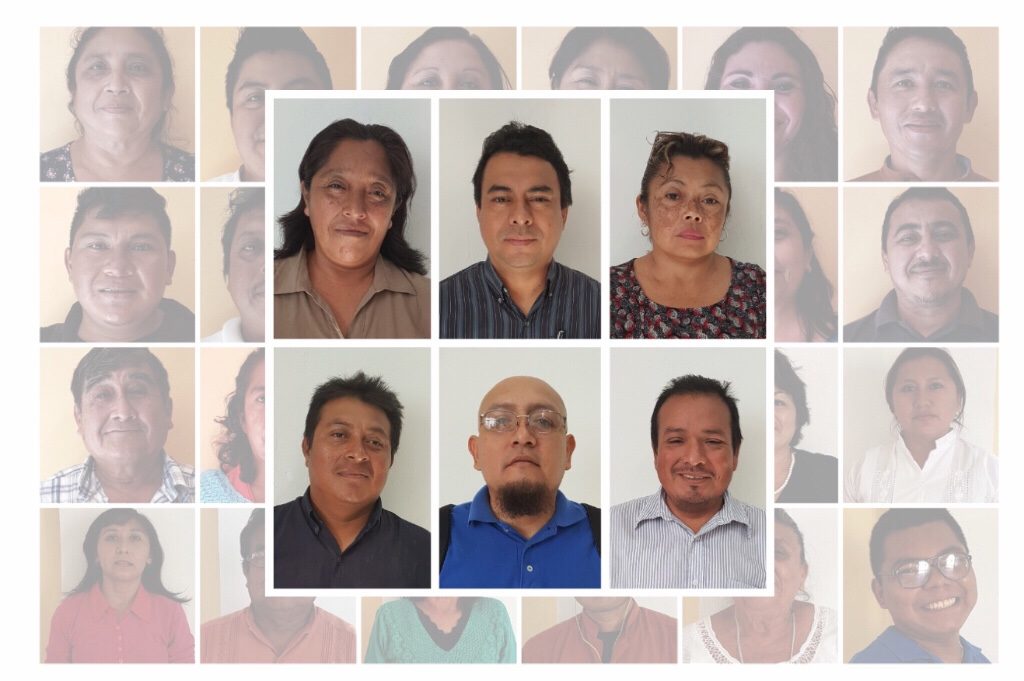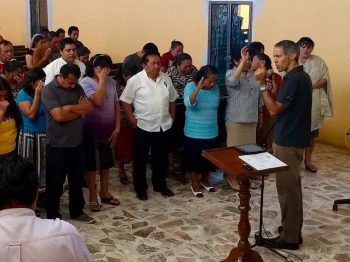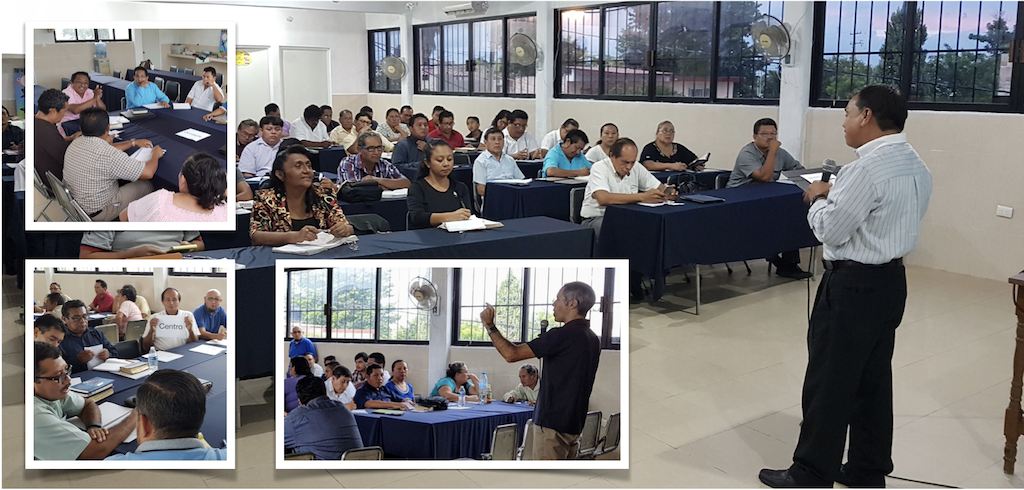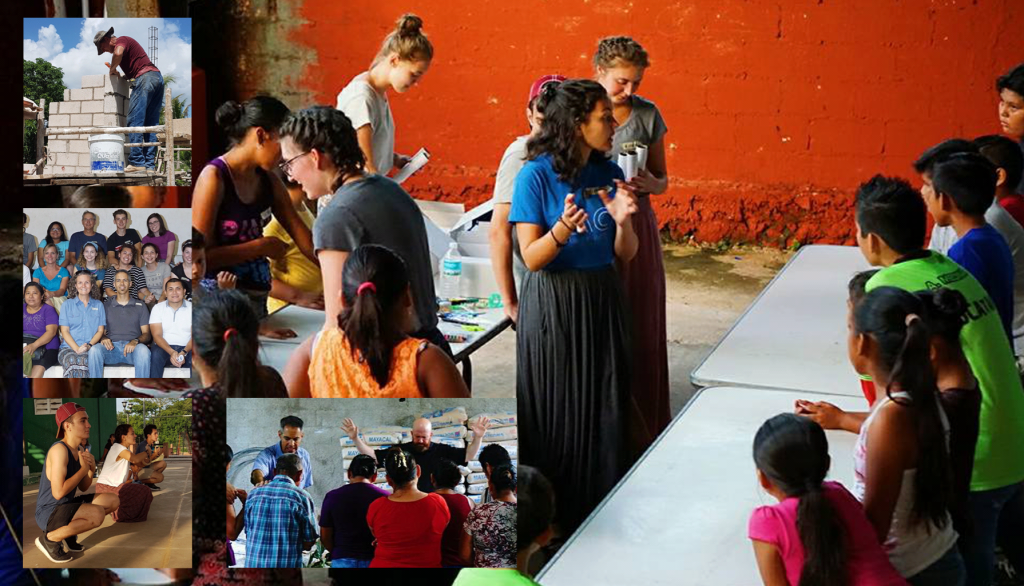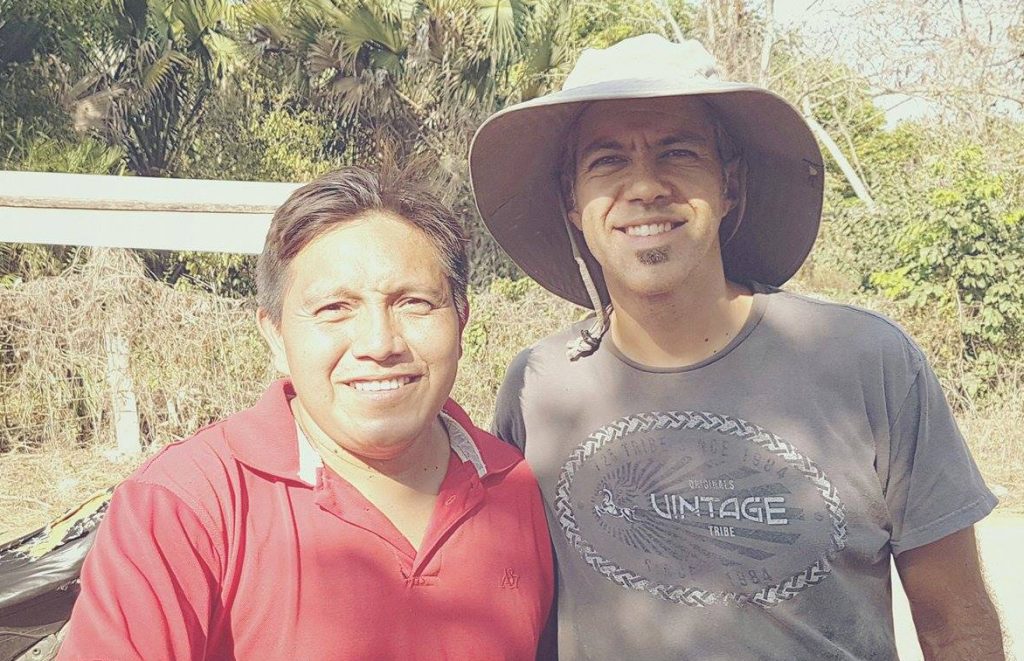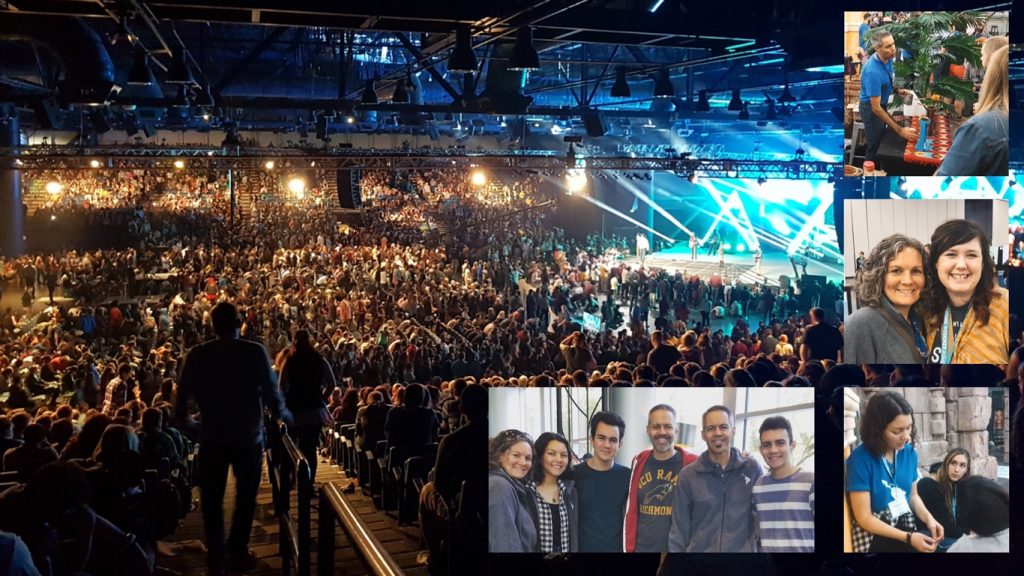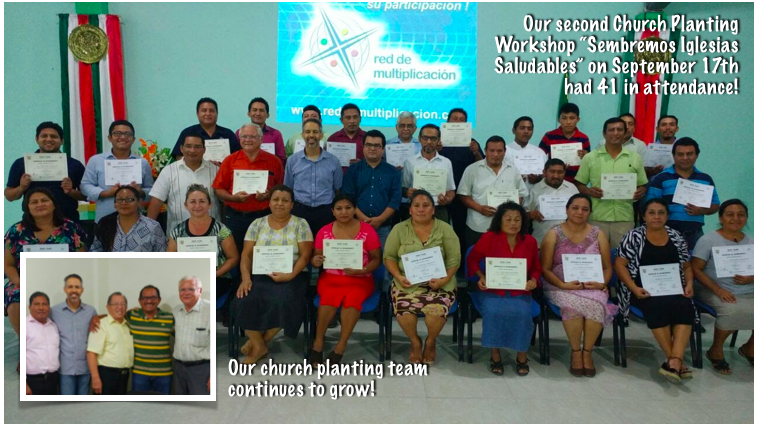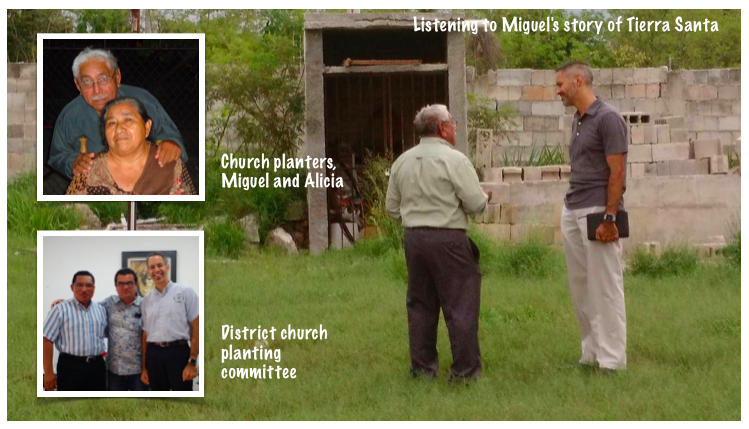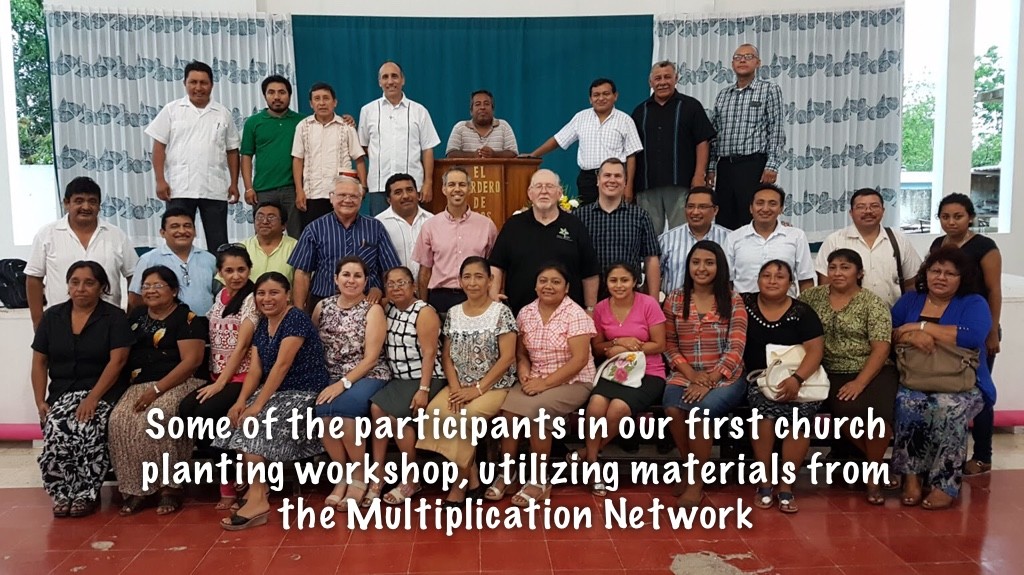Commencement. It’s a word that takes us back to our college days; it makes us think of those graduation ceremonies that, for many of us marked the end of our formal education. The word commencement, however, also speaks of a beginning. This month, we’re experiencing the dual significance of that word. January 12th marks the commencement (ending) of our church planting pilot project while January 19th is the commencement (beginning) of our new program, now no longer a pilot project but a district-wide undertaking.
ln 2016, we introduced Red de Multiplicación here in the Yucatan, and the six pictures that you see above are of the graduates of that program. Their commencement, however, marks much more than the end of a course of study. It is the celebration of the new churches and the changed lives that their perseverance and practice have facilitated. While we say goodbye to several of them as active participants in the program, we launch them with the confidence that they’ve acquired the mindset and practices that will ensure that the works that they lead will continue to flourish.
In 2017, we began the cycle again, casting vision, setting goals, and encouraging participation. The preparation now ceases and the work begins, distributed across 5 sites and employing 15 coordinators and teachers to facilitate the work of dozens of planters (represented above behind our graduates) as they look to fulfill the shared vision of the Yucatan full of churches.
We covet your prayers as we celebrate these commencements. Please add both our graduates, Sara, Moises, Reina, Fausto, Alex and Luis to your prayer list as well as those new workers that are now following the path that they have blazed.

